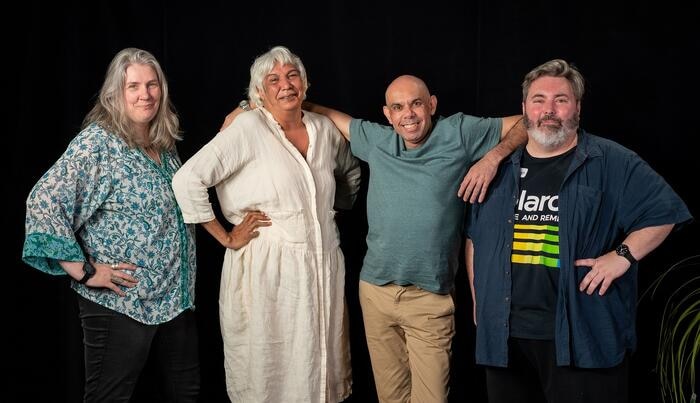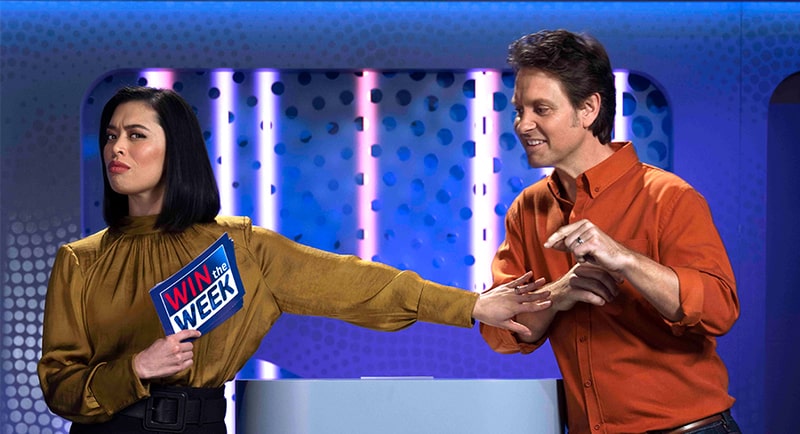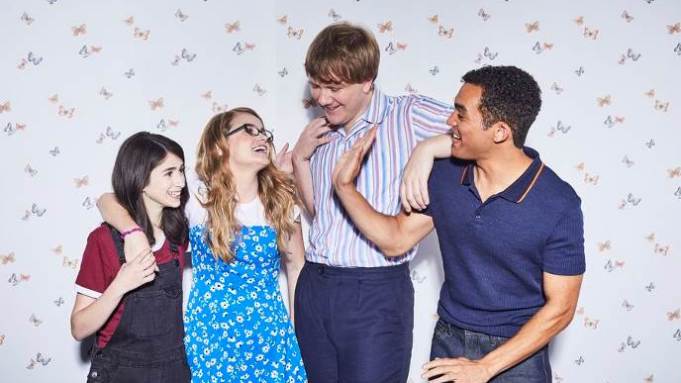Australian Tumbleweeds
Three Sheets to the Wind
Slightly delayed because we weren’t entirely sure it was an actual comedy series press release time!
ViacomCBS Australia and New Zealand today announced that its first original Australian commissioned drama series, Spreadsheet, has begun production in Melbourne for Paramount+.
Starring UK actress Katherine Parkinson (The IT Crowd, Doc Martin), Spreadsheet features a stellar cast including Stephen Curry, Robbie Magasiva, Rowan Witt, Katrina Milosevic, Ryan Shelton, Zahra Newman, Tina Bursill and Richard Piper.
Produced by Northern Pictures in association with ITV Studios and created by Kala Ellis, Spreadsheet is an eight-part comedy series about divorced, hectic mother-of-two, Lauren (Katherine Parkinson) who is looking for sex without commitment.
With the help of best friend Alex (Rowan Witt), she develops “Spreadsheet”: a database of sex options, customised to ensure her sushi train of sex rolls around with variety and order amidst the chaos of her life. What Lauren didn’t expect was a slew of needy men, which apparently even a well-managed excel tracker can’t control.
Head of Drama and Production, Rick Maier, said: “When you read an idea this fresh and laugh out loud funny from such an original voice as Kala Ellis, it very quickly gets into your system. Then when you add Katherine Parkinson and this sensational ensemble you know you’re really onto something. I can’t think of a better first original commission for Paramount+.”
Northern Pictures Executive Producer and Head of Scripted, Catherine Nebauer, said: “Northern Pictures prides itself on creating unique series’, which surprise and delight, and this is certainly one of them! It’s been a joy to see Spreadsheet come together, with such a talented team behind it. Director, Darren Ashton and Creator/Writer, Kala Ellis have worked closely together to create the perfect blend of comedy, drama and spice, which only Katherine Parkinson can deliver!”
ITV Studios, EVP Global Content Julie Meldal-Johnsen, said: “Just thinking about Spreadsheet puts a smile on my face. Kala’s writing is warm, funny and poignant at the same time – making Katherine Parkinson the perfect person to play the hilarious and chaotic Lauren. Working with producer Northern Pictures again is a pleasure and we are very proud to be bringing Paramount + Australia’s first original comedy commission to our international clients. The show is sexy, frank, unapologetic and we are sure will engage and entertain people around the world.”
So wait, it’s both their “first original Australian commissioned drama series” and “an eight-part comedy series”? We’d say make up your mind, but this is how scripted television works in 2021: everything is a drama aimed at an overseas audience who probably won’t get the “jokes”, unless people start laughing (unlikely), at which point of course it’s a comedy, everybody loves those things.
Just not enough to actually make any of them.
Biting back
History Bites Back, a satirical documentary on structural racism in Australia, aired on SBS Viceland last night as part of NAIDOC week. Presented by Trisha Morton-Thomas (8MMM Aboriginal Radio) and co-written by her and Craig Anderson (Sando, Double The Fist), History Bites Back features a cast of indigenous comic actors led by Black Comedy alumni Steven Oliver and Elaine Crombie, who reminded us, in fairly stark terms, of the multiplicity of ways in which non-indigenous Australians have made life near impossible for indigenous people over the past 200 or so years.
And if this doesn’t sound like a particularly hilarious program, then, no, it isn’t much of the time. Mostly, this is a deadly serious documentary, with some occasional, dark in tone, comic re-enactments of some of the historical moments discussed.
A section on British bomb testing in the outback in the 1950s shows how entire groups of indigenous people were blinded and killed by the nuclear fall-out or forced off their land and into slavery, but also a sequence where Steven Oliver tries to outrun the expanding mushroom cloud of one of the bombs. Oliver is great at visual comedy, and the sight of him running away as fast as he can is funny, but his character doesn’t beat the nuke, so there’s no happy ending here.
There also aren’t many laughs to had from some of the (sadly genuine) social media comments which Morton-Thomas reads out to illustrate the scale of how fucked white/indigenous relations actually are. All the usual tropes about indigenous people being lazy bludgers (and much, much worse) are presented – this is no holds barred – but so is the response from Morton-Thomas and company. If you’re one of those white people who assumed that indigenous Australians aren’t routinely denied the basic rights and privileges of Australian citizenship like passports and welfare, then you may need a lie down after watching this. The scale of the problems and the lack of interest in addressing by our political establishment is truly shocking.
History Bites Back is the kind of programme that more people should see. And the histories it discusses should be taught in schools. If you’re a city-dwelling white person whose sum total of education about indigenous Australia was a few Dreamtime stories and a brief look at the 1967 referendum, then this is a real eye-opener. And shows how far we as a society have to go.
Mad as Mad as Hell
One of the many, many ways you can tell Mad as Hell is a great comedy show is that when things get shit out in the real world, the comedy on Mad as Hell gets sharper. Which sounds like it should be obvious, but then you remember The Weekly gave us multiple seasons of Corona Cops during a pandemic where hundreds of people in Australia died and gee, the bar isn’t so much low as buried in an abandoned NBN trench when it comes to Australian satire these days.
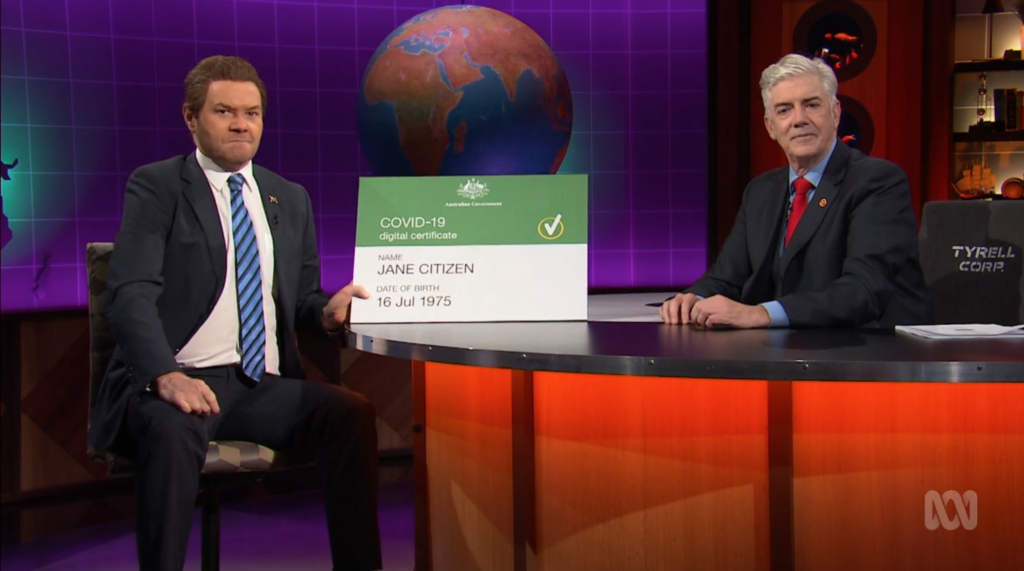
This week’s episode was especially interesting, in that on a couple of occasions it seemed so cutting that the audience – in stark contrast to last week’s extremely enthusiastic crowd – forgot to go nuts. Maybe they’d been flown in from NSW? It’s amazing how the national discourse has suddenly turned to “oh well, guess there’s no stopping this Delta variant, time to learn to live with it” now that people are on ventilators within coughing distance of the country’s media HQs.
But across the board this week’s episode seemed firmly determined to sink the boot in, from the 100% percent accurate and deserved dismissal of Dr Karl Dr Orbspider to an even more brutal than usual kicking delivered to the Daily Telegraph to calling Micallef himself FriendlyJordies (ouch). Not to mention the usual savaging directed towards our political leaders; we’re fairly sure there’s a very good reason why every episode begins with Scott Morrison telling everyone to leave Mad as Hell alone.
Sure, there was plenty of quality lightweight stuff in the mix too. Micallef eating popcorn! “Australia’s immunity will be seen and not… herd”! But on the whole with this week’s episode there seemed just a slight undercurrent of “this country’s fuckin’ fucked”. Hey, it’s not like they’re wrong.
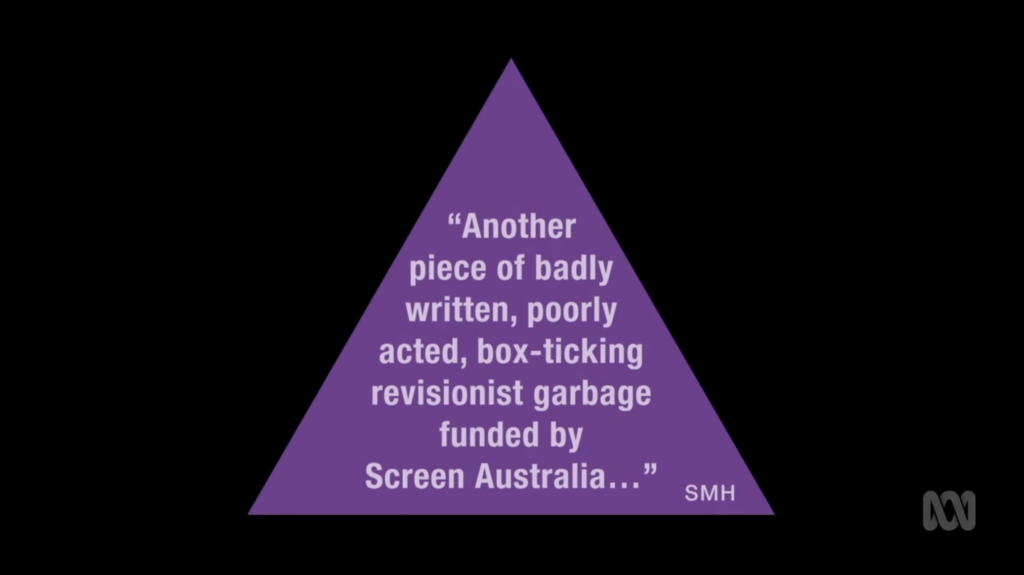
Let’s be honest: we’re very much here for an Australian comedy series that actually has something to say. Most of the time our current comedy is either bland to the point of pointlessness, or simply the kind of good time you get when a bunch of mates are hanging out talking shit to (and about) each other. There’s a time and a place for that kind of thing (in the case of The Weekly, that place is the bin), but in 2021 things are just a little too serious for that to be the only kind of laughs on the menu.
At a time when comedy itself seems to be on the chopping block – comedy movies are dead, sitcoms are close behind, don’t even mention sketch shows and stand-up specials are people crying in their room about how being online is stressful – Mad as Hell increasingly seems like an outlier. The idea that you can have a view on current affairs and still make jokes about it (rather than just shouting at people) is increasingly out of style; each week Mad as Hell proves you don’t have to be fashionable to be funny.
The ScoMo Diaries: a review
Finally we’ve been able to lay our hands on a copy of Tosh Greenslade and Andrew Weldon’s The ScoMo Diaries. And we didn’t even have to wait for one to come free at the library! Guess there’s an upside to all those bookshops having closing down sales.
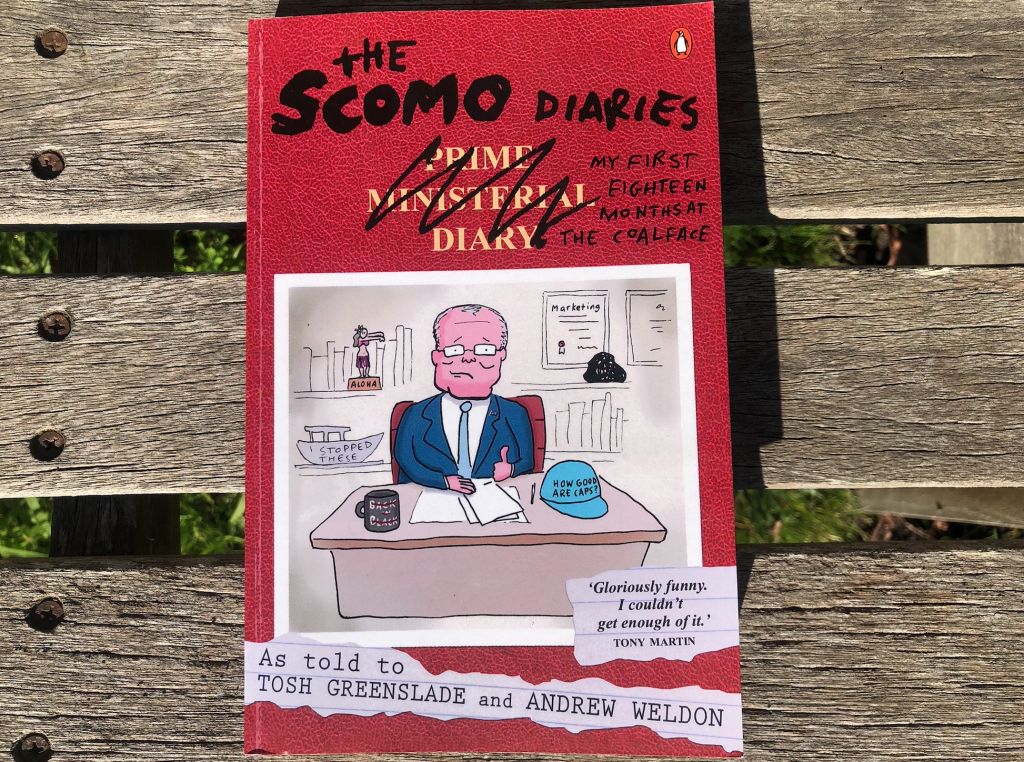
First, the good news: in something of a rarity when it comes to Australian comedy books, this is actually funny. At least some of the credit there goes to Morrison himself, who under another media regime would be labelled “a persistent bungler”. Any list of his activities over the last few years would struggle to come up with many (any?) positives; his supporters are on board because he’s their guy, not because of his strong and forceful leadership when it comes to steering the ship of state.
But there’s more going on here than a collection of cheap potshots at an easy target (though rest assured, there’s a few of those too). As a regular on Mad as Hell, Greenslade’s a vital part of that finely tuned comedy machine – and presumably, having seen it work up close for a number of years now, he’s picked up a few tips along the way.
For starters, the comedy is just a little bit more fantastical than you’d usually find in Australian political humour. It’s not an over-the-top parody of a chunk of Australian politics, but it’s not played with a completely straight bat either. That keeps things fresh (it’s not 200 pages of tax cut jokes) and keeps people whose interest in politics is somewhat superficial (that’s us) entertained with silly diversions.
The big strength here – aside from Weldon’s illustrations, which are always charming and frequently hilarious – is ScoMo himself. Greenslade has done a great job turning him into a comedy character, a blinkered egotistical self-serving dimwit who, despite having a certain kind of faux-innocence that isn’t so much stupidity as it is an extremely rigid way of viewing the world, is still able to make a number of fairly sharp and funny observations about those around him.
As the book goes along and ScoMo’s dodgy antics pile up, things tilt from a kind of chirpy “of course I’d be plotting and scheming and screwing people over, it’s how politics work” to a (slightly) darker mix of frustration and naked entitlement. The laughs are always there though – even if sometimes they’re at the expense of us poor sods who have to live with him. As ScoMo himself puts it, “If second class doesn’t exist, then there’s nothing special about being in first”.
That said, this is probably more of a book to dip in and out of than to read in one sitting. Some minor engagement with Australian politics wouldn’t hurt either, if only to separate fact from fiction. The sports rorts were real; Christopher Pyne being a demonically possessed wooden dummy remains up for debate. And the sheer weight of the scams, rorts, and blunders detailed here can be a bit overwhelming; no wonder people were feeling stressed out even before Covid.
If we were professional book reviewers this is where we’d come up with a snappy line that could go on the cover of the second edition if the publishers were extremely hard up. Unfortunately we’re not professionals in any sense of the word, so you’ll have to make do with “it’s good, go buy a copy”.
After all this is a book that has ScoMo saying “Do what you like to everyone else, but I’m off limits”; we can’t top that.
Like Moths to a Lame
Press release time!
Sketch comedy returns to Australian screens! The Moth Effect launching 30 July on Amazon Prime Video
Amazon Prime Video’s new Australian six-part Original satirical sketch comedy series The Moth Effect from Bondi Hipsters co-creator Nick Boshier and Tonightly’s Jazz Twemlow
From the less attractive half of the Bondi Hipsters and the comedic savants that created Nice Shorts comes The Moth Effect – a six-part daft and joyous journey into comedy satire
COMING TO AMAZON PRIME VIDEO WEEKLY FROM 30 JULY
Produced by Bunya Entertainment and Amazon Studios
SERIES SYNOPSIS
The world is melting but fear not: satirical sketch show The Moth Effect is here to repeatedly flap and bump into humanity until all our problems go away. Created by Nick Boshier and Jazz Twemlow, this satirical bonanza features some of Australia’s best and funniest performers as they punch up and punch themselves, tackling everything from climate change and reality TV to the military industrial complex and time travel paradoxes. There’s no target too weird, complicated, silly, or dumb in season one of The Moth Effect, as Australia’s best and funniest performers send up humanity in 2021.
OVERVIEW
The Moth Effect is a 6-part sketch comedy series filmed in Sydney Australia for release on Amazon Prime Video from Friday 30 July in Australia, United States, United Kingdom, Canada and New Zealand, plus select additional territories launching later this year.
Nick Boshier and Jazz Twemlow are bringing a new kind of satirical comedy to 2021, going broader, bigger and funnier than ever before with a sketch show that goes above the news cycle. This weekly show condenses current meaty issues, zeitgeisty vibes, and cultural catastrophes into quality, high production-value universal comedy.
Featuring sharply written sketch comedy, where no area is off limits, The Moth Effect pokes fun at social movements, parodies the worlds of breakfast and reality TV, the Aussie way of life, and much more, all with sheer comedic flair. The Moth Effect is set to deliver the finest Australian sketch comedy for Amazon Prime members.
The Moth Effect, features over 30 sketches, music videos and interstitials starring superstars including Bryan Brown, Vincent D’Onofrio, David Wenham, Jack Thompson, Miranda Otto, Ben Lawson, Peter O’Brien, Kate Box, Zoe Terakes, Miranda Tapsell and Jake Ryan alongside some of the best and freshest Aussie and Kiwi comedic talent and personalities including Mark Humphries, Nazeem Hussain, Zoe Coombs Marr, Jonny Brugh, Lucinda Price, Dave Woodhead, Louis Hanson, Steen Raskopoulos, Tim Franklin, Sam Cotton, Christiaan van Vuuren, Sarah Bishop, Sam Campbell, Megan Wilding and Brooke Boney.
The Moth Effect is directed by Craig Anderson (Double the Fist, Review with Myles Barlow, Laid, Black Comedy) and Gracie Otto (Under the Volcano, The Other Guy, Bump). Produced by Lauren Elliott (KGB, Small Town Hackers, DAFUQ?) and Jordana Johnson (Nice Shorts), and Executive Produced by Sophia Zachariou (Nice Shorts, The Checkout, Gruen, The Chaser, Shaun Micallef’s Mad As Hell and Judith Lucy’s Spiritual Journey). The series was written by Nick Boshier and Jazz Twemlow with a team of contributing writers including Sarah Bishop, Bridie Connell, Mark Humphries, Nazeem Hussain, Natesha Somasundaram, David Woodhead and Meg O’Connell and Ramsay David Nuthall.
CREATOR’S STATEMENT
Moths are famously distracted by bright, shiny lights and as people we’re often drawn to the biggest, loudest spectacle, even if it’s bad for us. We have created The Moth Effect to take Prime Video viewers on a daft, joyous, and every-so-often-not-a-dumb journey into satirical absurdity. The series seeks to tap into what’s on everyone’s mind and even tap into what’s not on their mind, but perhaps should be. We’ll even put some stuff in your mind you never wanted there in the first place!
Is it just us, or does it sound like this show has no regular cast? And part of the run time is going to be filled up with “music videos and interstitials”? And Vincent D’Onofrio? And… look, lets just say this poses more questions than it answers. Especially as the press release goes on to mention a few of the sketches, which are… okay, here goes:
Smart Pillow: A couple (David Wenham and Miranda Otto) have their lives turned upside down when they order a manipulative, needy SmartPillow™
Q-Eye: Old-fashioned academic, Ted (played by Bryan Brown), gets Q-Anon to give him a stylish, modern rebrand.
Dad Vibes: A catchy anthem for all the busy daddies out there who get a disproportionate amount of praise for doing the same as, or less than, mum.
“And those are the good ones!” is the kind of thing you’d expect us to say, but no, they’re just the ones with name stars involved – apart from Dad Vibes, which suggests the music videos will be comedy ones. Answers on the back of a postcard as to who’ll be doing the singing (Vincent D’Onofrio?)
It’s totally possible this could work: getting a bunch of people, many of them funny, to do one or two really good sketches each would definitely lift the current strike rate of Australian sketch comedy. And if it doesn’t… well, it’s not like yet another crap Australian sketch show is going to be front page news or anything.
Mind you, “season one of The Moth Effect” is hilariously optimistic.
Vale How To Stay Married
Series 3 of How To Stay Married ended last night as it began: with little to no laughs.
Sitcoms generally make their viewers laugh by a combination of funny dialogue, funny characters, funny situations and funny performances. How To Stay Married seemed to avoid including most of these elements because it, presumably, assumed that the highs and lows of raising a family or the rivalry within a parents’ group would be funny in and of themselves. And perhaps they might have been if any of the Butler family (played by Peter Helliar, Lisa McCune, Willow Ryan-Fuller and Vivien Turner) or the parents in the group (played by Casey Donovan and Broden Kelly, amongst others) were given anything remotely funny to do or say.
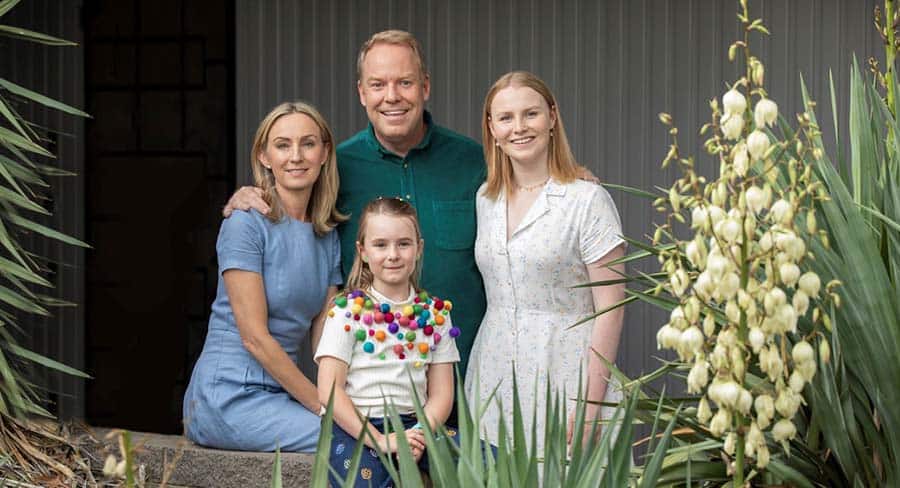
And this is despite the demonstrable ambition of the writers to inject a bit of parody into this series, with topical plotlines involving political spills and celebrities going on telly to talk about the conspiracy theories they believe in. Mind you, if you’re going to make a point or make people laugh by referencing something topical, you might want to consider going beyond merely shadowing real-life events in your story…
So, most of the problems with How To Stay Married were down to the creative choices of the writers. But what’s worth remembering is that those creative choices affected the output of everyone else working on the show too. Imagine trying to direct How To Stay Married. There’s almost nothing to work with! You could try to inject some laughs into the show, by, say, encouraging the cast to really go for it, performance-wise. And as the cast included Aunty Donna’s Broden Kelly, not the type of comedy performer to not go for laughs, and Judith Lucy, a comedian who over the past three decades hasn’t exactly been shy to “go there”, then you should be onto a winner with that idea.
Yet here the script let everyone down yet again. Broden Kelly had little choice but to play it straight most of the time – because – and we really can’t stress this enough – there really was nothing to work with. And as for Judith Lucy, well, she tried hard, but there’s only so much even a performer as good as her can do.
The basic problem, really, is that the writers of How To Stay Married have chosen to centre their show on a bland everyday family, who do bland everyday things. There’s a way to make everyday people funny, of course, but as they’ve not worked out how to do that after three series, it’s pretty unlikely that any future series of How To Stay Married would suddenly become character-based cack-fests.
Superwog Returns
Superwog is back on both iView (all of season 2) and the ABC, and you know what? We actually enjoyed it. Sure, it’s not as funny as the time Nick Giannopoulos got his lawyers to try and stop comedians from using the word “wog” in their shows, but that remains the pinnacle of wog-based comedy in this country; there’s no shame in standing in that mighty shadow.
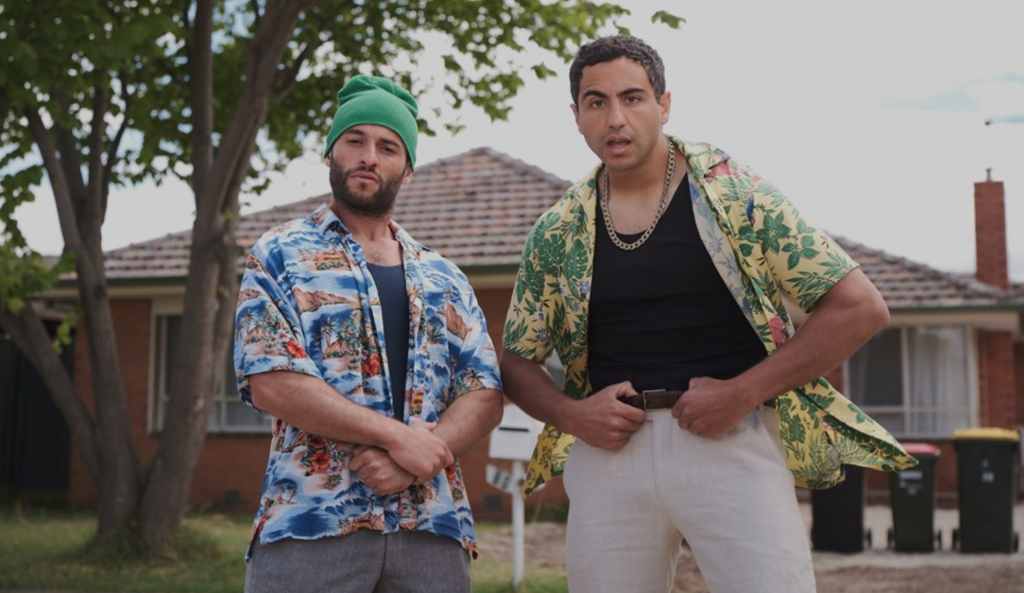
There’s not a lot of moving parts in your average Superwog episode. Superwog (Theodore Saidden) is a teen doing teen shit with his best mate Johnny (Nathan Saidden); his parents (also the Saiddens) are broad comedy stereotypes who remain recognisable enough to get laughs.
The first episode of season 2 has two parallel car-related storylines: Superwog tries to get his P plates, while Wog Dad tries to stop his neighbour from parking out the front of his house. Will Superwog get the angry instructor who fails everyone? Will Wog Dad’s scheme to set up house on the road outside his house pay off? Will there be a fair amount of yelling and flailing about either way?
Most Aussie sitcoms are culturally non-specific; locations and the occasional accent aside, there’s nothing particularly Australian about shows like Rosehaven and How to Stay Married. What they are is firmly middle-class. For some reason, Australian culture is seen as something only poor people have – middle class sitcoms exist in a bland netherworld where the occasional reference to cricket is as local as it gets.
Superwog, on the other hand, is Aussie as – or at least, it’s not afraid to make jokes about things that actually happen to average people in Australia. A major plot point is the importance of giving the thank you wave after another driver lets you in; if you haven’t been pissed off by a neighbour parking their car in front of your house then you probably live in a block of flats. It’s not exactly subtle, but it’s also the kind of comedy we don’t get to see often enough.
(A later episode involves a swooping magpie; good luck pitching that plotline to the US)
“But what about the extensive body of work belonging to one Paul Fenech?” we hear you ask. Yeah, it’s true, once upon a time Fenech had a few real observations about working class / immigrant Australian society scattered in between the shouting and swearing and thonging. But these days? His characters’ aren’t recognisably human, let alone Australian.
Superwog is pretty blunt at times and there’s plenty of shouting and running around, but even the comedy swearing isn’t usually a punchline in itself. And while we’re not talking Seinfeld-level plotting or anything, both plots in the first episode have a beginning, middle and end that make (comedy) sense while being funny all along the way, which isn’t something you can say about most Aussie sitcoms.
Sure, nobody’s claiming that a sequence based around turning on the cold taps while someone’s in the shower is classic comedy or anything. But it’s still funnier than anything on two entire seasons of Squinters.
Hughesy Loses It
Over the last 24 hours or so, millionaire property owner and TV host Dave Hughes has managed to make a bit of a dickhead of himself. Going on social media – and seriously, we could stop right there – to stand up for gyms in the midst of a covid pandemic spread in part by people exerting themselves in confined spaces, he rapidly discovered nobody sensible was on his side and deleted his tweet. Like that ever works!
This isn’t the first time Hughes has gotten himself in hot water on Twitter; last year he seemed to be making fun of Joe Biden’s stutter, which went down about as well as you might expect. But there at least he was just making an ill-informed stab at commenting on the news. Here he’s tapped into a slightly bigger issue.
Australian comedy has always had “elder statesmen” that act like dickheads. Daryl Somers. Daryl Somers. And of course, Daryl Somers. But in the past we also had young up-and-comers pushing their way into the spotlight to balance them out. In 2021 Australian comedy no longer has a spotlight; you’re either just starting out and already looking overseas, or you’ve been around since the 90s.
In itself, not a serious problem: comedy is comedy whatever your age. But the decline in comedy opportunities over the years means that the opportunities to actually be funny have also declined, which means if you’re one-time comedian Dave Hughes most of your career (outside of stand-up) over the last decade or two has been hosting gigs where “funny” means “what a character!” rather than, you know, being funny.
Problem a): the comedy muscles atrophy, and you get one-time comedians who end up thinking people are interested in their opinions, not their amusing comedy opinions. WRONG.
Problem b): as these comedians (and pretty much everyone else in the Australian media) move up in the world, they often, for want of a better term, “lose touch with the common man”. This is why there’s been so much focus over the last year on the effects of lockdown on small business owners: while most people mostly know people who work for a living, successful media people make the kind of money that means they socialise with small business owners. They don’t hang out with personal trainers at the gym, they hang out with the person who owns a chain of gyms.
Covid has been a disease that has created winners and losers in society. If you can work from home in a secure job, then you’re a “winner”; if you work in an essential service that means you have to run around visiting multiple people who may be affected, you’re less of a winner. And if you’re a small businessperson who’s invested heavily in a business that requires a large number of people being packed into a small area for a lengthy period of time, you’re now also somewhat less of a winner.
This has come as a shock to Dave Hughes’ mates small business owners, because for as long as anyone can remember both sides of politics (but mostly the LNP) have treated small business owners as winners. Remember wage theft? Remember working shit jobs in retail? Remember how wages and conditions for low income workers have been rolled back over the last decade?
Suddenly now, just because of some mildly fatal disease, their mates in government are telling them they can’t just do what they like. What the hell? No wonder they’re getting their heads on the news every single night of every single lockdown complaining about pretty much everything.
Dave Hughes’ problem isn’t that he’s an ill-informed nitwit; he’s perfectly well informed on what his mates think is important. His problem is that he’s forgotten what his job is. Any way you slice it, saying what every unhappy small business owner is already saying on FB only with staring dead doll eyes isn’t comedy; if he isn’t trying to be funny, what’s the point of keeping him around?
Vale Everything’s Gonna Be Okay series 2
Josh Thomas’ Everything’s Gonna Be Okay has had a lot of positive media coverage. Often the focus has been on how it has positively and realistically portrayed characters who are neurodiverse and/or not heteronormative. And yes, it has done that. Depression, panic attacks, anxiety, awkwardness, frustrations, missteps, arguing couples…it’s all been covered – and in a way that has rarely been seen on TV previously.
However, the one big thing missing from much of Everything’s Gonna Be Okay has been a compelling reason to watch it. Leaving aside the latter episodes, which, SPOILERS, contained dramatic events including a relationship breakdown and a will they/won’t they/should they wedding plot, much of the series just seemed to just drift along. Even the notion that Nicholas (Thomas) has a career as an entomologist, or that Matilda (Maeve Press) and Genevieve (Kayla Cromer) have to go to school, or that Alex (Adam Faison) is trying to become a dentist, seem to have been forgotten as potential drivers of the storyline in favour of episodes which just seemed to involve the principal cast mooching around the improbably enormous and beautiful house they all live in. Was this because they were confined to home due to COVID lockdowns? Hard to tell, as the pandemic was barely mentioned in this series.
You could argue that Everything’s Gonna Be Okay was trying to challenge the traditional three-act, A- and B-plot, structure of most contemporary sitcoms, by experimenting with something a bit more freeform. But if that’s what the show was doing, it didn’t work. Not if the aim was to produce something entertaining, anyway.
Oh, and wasn’t Everything’s Gonna Be Okay meant to be a comedy? Because jokes and funny lines and amusing situations were also not a feature of this show. Occasional witty lines or wryness from a character was about as much as we got. That and truckloads of poignancy about them coping with something. Or attempts to be charming, which mostly came across as tweeness or sappiness.
So, while Everything’s Gonna Be Okay has absolutely succeeded in representing rarely-seen character types on our screens, it has absolutely failed as comedy and entertainment. This is a shame, as there’s definitely no reason we can think of why a comedy about neurodivergent characters with a range of sexualities couldn’t be hilarious. The problem here seems more that the people behind this show didn’t want to or couldn’t be bothered to go there, and that no one on the production side questioned this.

